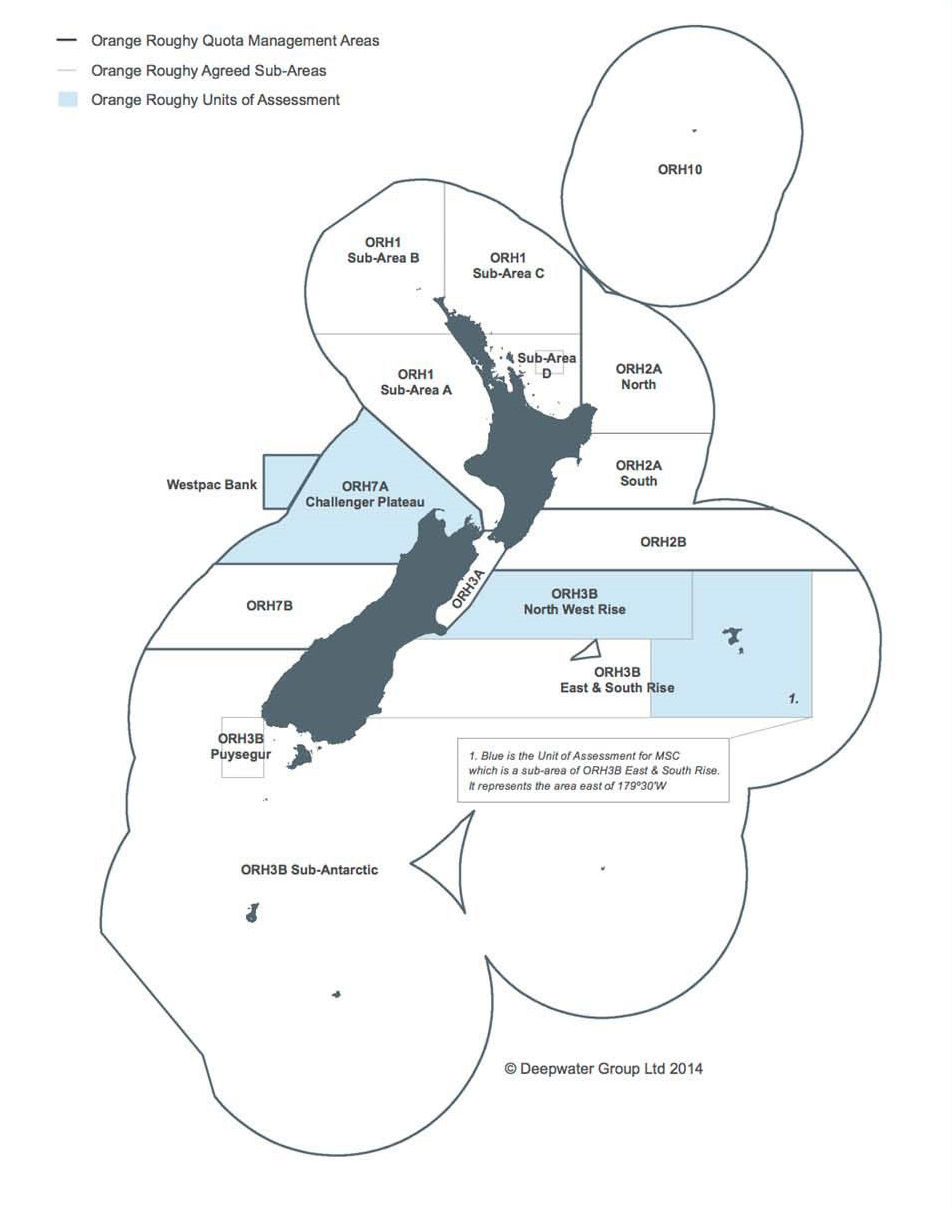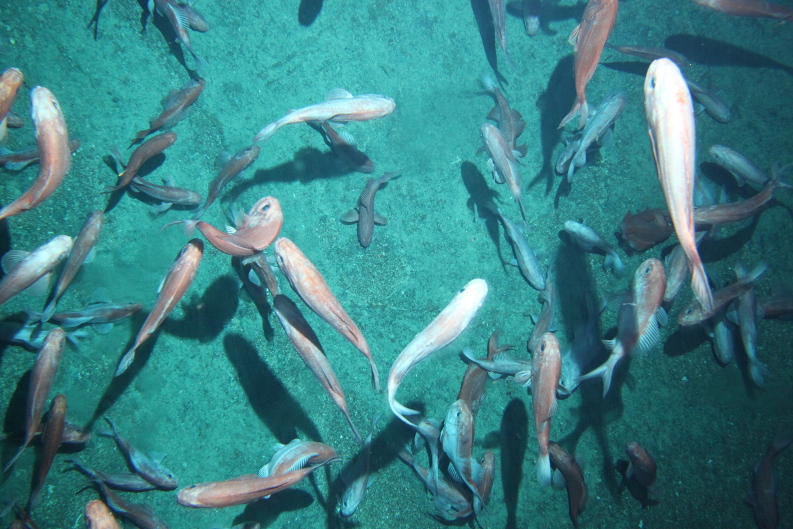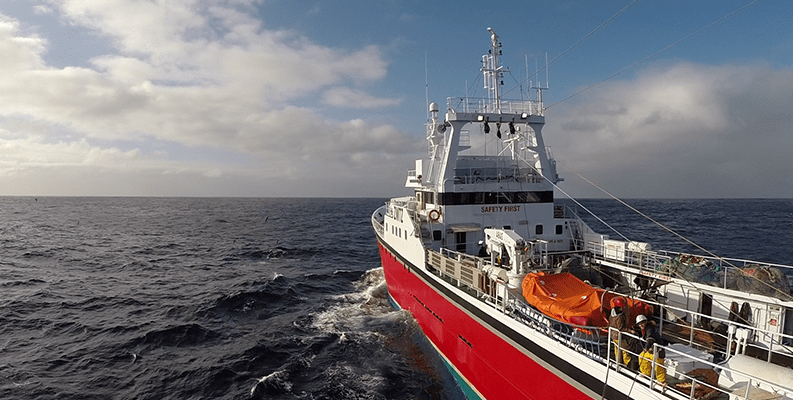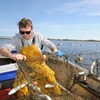The NZ Orange Roughy Fishery is self-suspending two of its three units of MSC certification (ORH3B East & South Chatham Rise), accounting for 65% of the fishery’s landings, as there is no longer a complete stock assessment. There was not enough time for scientists to complete a new stock assessment before the fishery’s annual surveillance audit.
Certificate suspensions are an important part of the MSC programme
The Marine Stewardship Council (MSC) is an international non-profit on a mission to end overfishing by setting the world’s leading standards for sustainable fishing and seafood supply chain assurance.
Fisheries voluntarily decide to get assessed against the MSC Fisheries Standard via third-party auditors. Once a fishery gains MSC certification, certificates last for up to five years subject to annual surveillance audits.
If for any reason a fishery can no longer meet the MSC standard, then their certificate can be suspended.
The NZ orange roughy fishery certificate is made up of three units
The New Zealand orange roughy fishery was first certified to the MSC Fisheries Standard in 2016 and then again in 2022. Within the fishery, there are three Units of Certification:
- ORH7A (inc. Westpac Bank)
- ORH3B East & South Chatham Rise
- ORH3B Northwest Chatham Rise

The NZ orange roughy fishery has self-suspended due to the removal of the stock assessment
The fishery is self-suspending the ORH3B East & South Chatham Rise unit of certification, accounting for 65% of the fishery’s landings, as there is no longer a complete stock assessment. There was not enough time for scientists to complete a new stock assessment before the fishery’s annual surveillance audit.
The self-suspension will be effective from 20 December 2023.
A stock assessment underpins MSC certification, providing crucial data to the independent auditors in confirming both the health of the target stocks and the management response needed to keep a fishery at the required level of performance.
Orange roughy is slow growing, so fisheries managers must take this into account when making decisions on stock levels. The New Zealand Quota Management System, established in 1986, has allowed for this including closing fisheries at times to rebuild stocks faster.
The stock assessment was removed as it did not accurately reflect the stock status
The orange roughy stock assessment for ORH3B East & South Chatham Rise was removed by the NZ Fishery Assessment Plenary due to concerns with the models’ parameters and assumptions and was therefore considered to no longer accurately reflect the stock status.

The NZ orange roughy fishery is on a pathway to regain MSC certification
Deepwater Council which operates the NZ orange roughy fishery has agreed to a 40% reduction in the catch, as a precautionary approach until a new stock assessment is completed.
Intending to regain MSC certification in the future, the fishery has committed to putting the ORH3B East & South Chatham Rise stock into the MSC’s In Transition to MSC programme. This mechanism offers the fishery the ability to implement incremental improvements.
The MSC-certified part of the fishery will continue to be subject to annual surveillance audits, and the part of the fishery In Transition to MSC, will have annual progress verification reports. All of this is hosted on the MSC Track a Fishery website.
MSC-certified orange roughy remains available
Two other New Zealand orange roughy stocks remain MSC certified, accounting for 3,208 tonnes or 35% of landings in 2021.
Markets that recognise and reward those fisheries that maintain a high bar of ecological performance are critical in further encouraging other fisheries to make the necessary improvements to safeguard fish stocks into the future.
As fish stocks fluctuate due to environmental reasons and fishing efforts, independent auditors can if required, implement new conditions of certification, or where warranted, suspend a fishery’s certificate.
Consumers can be confident that future changes in the performance of MSC-certified fisheries are captured through annual surveillance audits, where stakeholder participation is encouraged.



